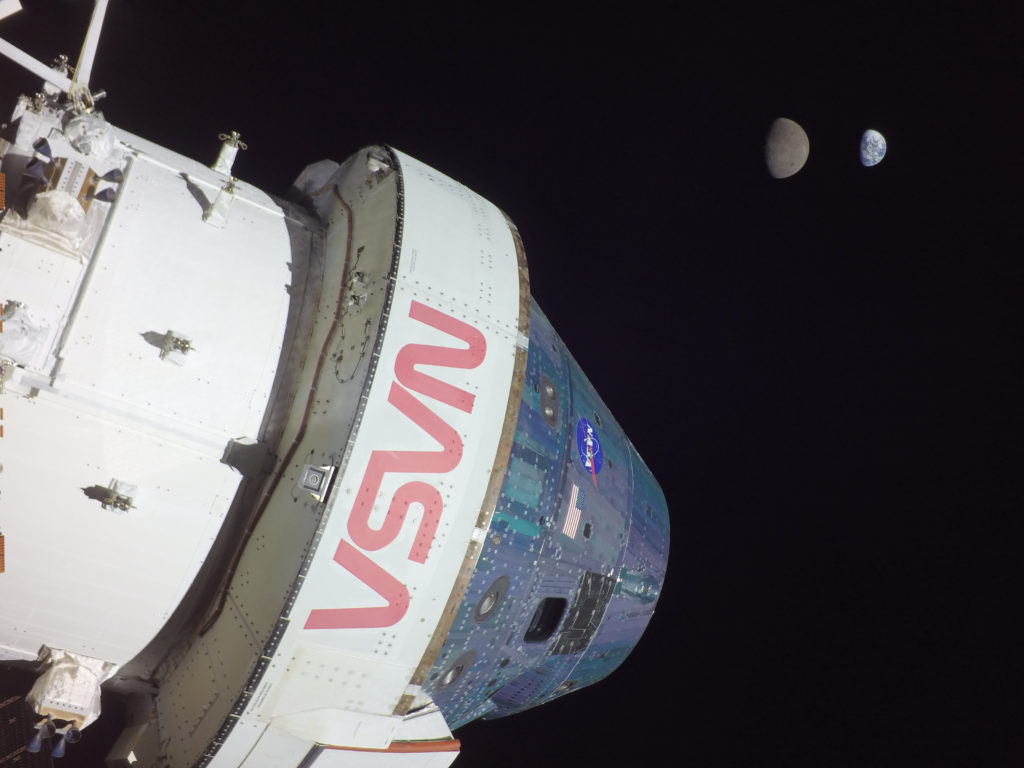It was disappointing to learn that the first manned test flight of the Artemis space program has been postponed to the end of 2025. If that goes as planned, and successfully launches four astronauts beyond Earth’s gravitational embrace into a lunar orbit and returns them safely, the next Artemis flight will be late in 2026, landing astronauts on the moon’s surface for the first time in 57 years.
Growing up during the space race, astronauts were like sports heroes. We grew up on sci-fi movies on late-night TV, and the dashing, fearless astronauts of the Mercury, Gemini, and Apollo programs became household names. Back in the day, I could rattle off the flight numbers of each space mission and the names of the astronauts who flew them like I was naming the batting order of the 1967 Dodgers.
Today, there are more astronauts than there are space missions. But I have to admit my inner 10-year-old is excited at the prospect of a return to the moon, even if the trip is delayed by a year.
There is so much more to space exploration than just satisfying the need for wonder. Since Adam and Eve were banished from the Garden of Eden, humankind has been sojourning. The Old Testament hinges on a journey to the Promised Land, and the New Testament is all about the spiritual journey that makes us all explorers.
The Age of Discovery, which we sometimes erroneously confine to the exploration of the New World, existed well before that, and will extend far beyond where we are today. The people who traversed the ice bridge from Asia to North America were just as intrepid as Vasco da Gama taking his small ships around the Cape of Good Hope, Africa’s southern tip, to make it to India.
Exploration, whether terrestrial or otherworldly, is a spiritual endeavor. You can debate the pros and cons of New World contact with the Old World all day long, but there is no denying that the Church was there to baptize and teach people about the Gospel. And as flawed as some of those travelers may have been (and how unfair it can be to assess the actions of men of faith 500 years through the lens of our modern sensibilities), I will always vote in favor of people coming to the God of the universe.
Which brings us back to the extraterrestrial form of discovery and exploration. Since nothing happens to even a sparrow on Earth without him knowing about it, you do not need an intricate logic syllogism to stipulate that he also knows what is happening in the Horsehead Nebula.
The Church has long been by the side of horizontal seafaring explorers, as well as astronomers with more vertical quests. Those who attack the Church as being “anti-science” notwithstanding, the lists of Church-sponsored scientists, especially astronomers, are as long as an MIT professor’s equation explaining quantum physics.
That may explain how even space exploration was intentionally or accidentally accounted for in the Catholic Church. It may have been 1969 when Apollo 11 landed Neil Armstrong and Buzz Aldrin on the Sea of Tranquility, but it was a 1917 Code of Canon Law that connected the Church on Earth to the heavens above.
There’s been plenty of discussion concerning a possible provision in the 1917 Code of Canon Law that’s been interpreted by some to suggest that any newly discovered land becomes part of the diocese from which the expedition originated (although its articles don’t address legitimacy of the bishops’ borders entirely). Following that logic, the current bishop of the moon would be Bishop John Noonan of the Diocese of Orlando, since all the Apollo moon flights blasted off from Cape Canaveral in Florida.
As some readers may know, my brother was a former auxiliary bishop for the Archdiocese of Los Angeles. He is now the Bishop of Fresno. I wish Elon Musk would move his SpaceX operation to Bakersfield and launch his mission to the Red Planet from there. I would love to tell people that my brother is the bishop of Mars. What a cool diocesan visit that would make.
Editor’s note: A previous version of this article stated there was a provision in the 1917 Code of Canon Law that would allow for the moon to be considered part of the Diocese of Orlando’s territorial jurisdiction. That possibility is not so simple, and that statement has been revised after consulting with canon law experts.

